
What does food mean to you?
Obviously, it’s a necessity for our subsistence. We eat to live.
Our body needs calories to provide our organism fuel.
Certain foods are more nutritious. And we prefer some over others.
But as humans, we are much more than our bodies. This is why Descartes famously said: “I think, therefore I am.”
We are also brains and hearts. We have reasoning faculties and feelings.
Our minds and souls need feeding too. But how do we take care of them?
We typically focus on the why and the what of eating.
But the how is equally important. And yet we rarely ask it:
What’s the best way for us humans to eat?
Science and experience agree on the answer: food is best consumed slowly and socially.
Food should be social
Social eating helps us come closer to others and feel better about ourselves.
Don’t take it from me — take it from the scientists.
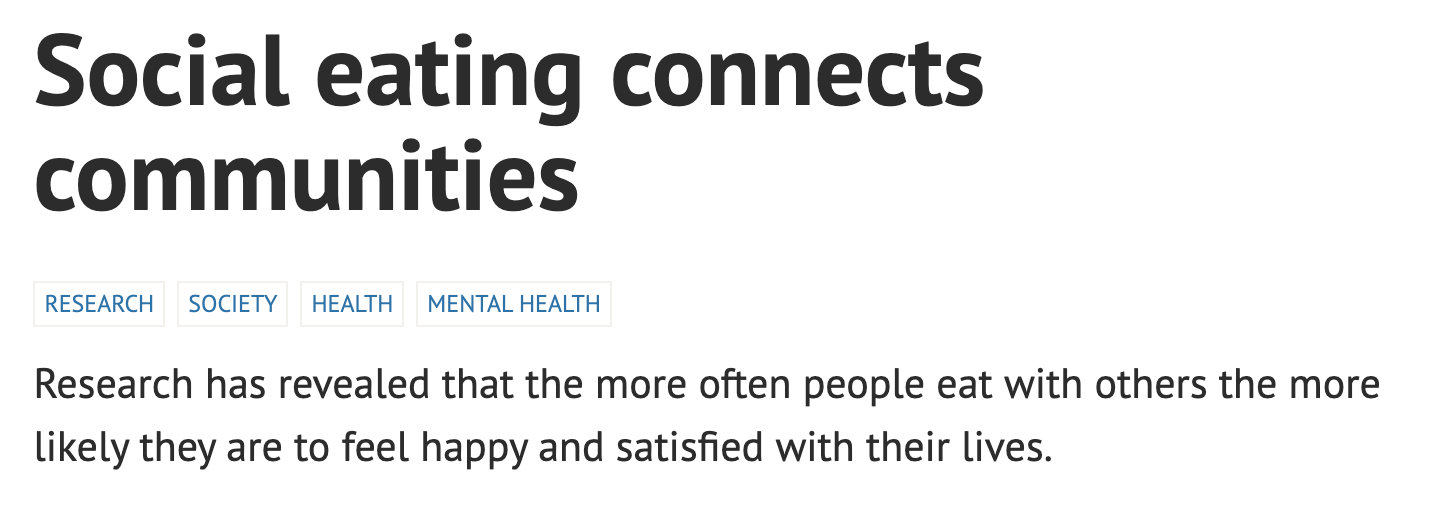
According to a 2017 study conducted at the University of Oxford:
“communal eating increases social bonding and feelings of wellbeing, and enhances one’s sense of contentedness and embedding within the community.”
Food has an uplifting power when consumed socially.
You feel it. After every fun dinner with friends, every long lunch with family, every romantic restaurant date with your partner. It feels better, right?
There is even a word for it: commensality — the act of eating together.
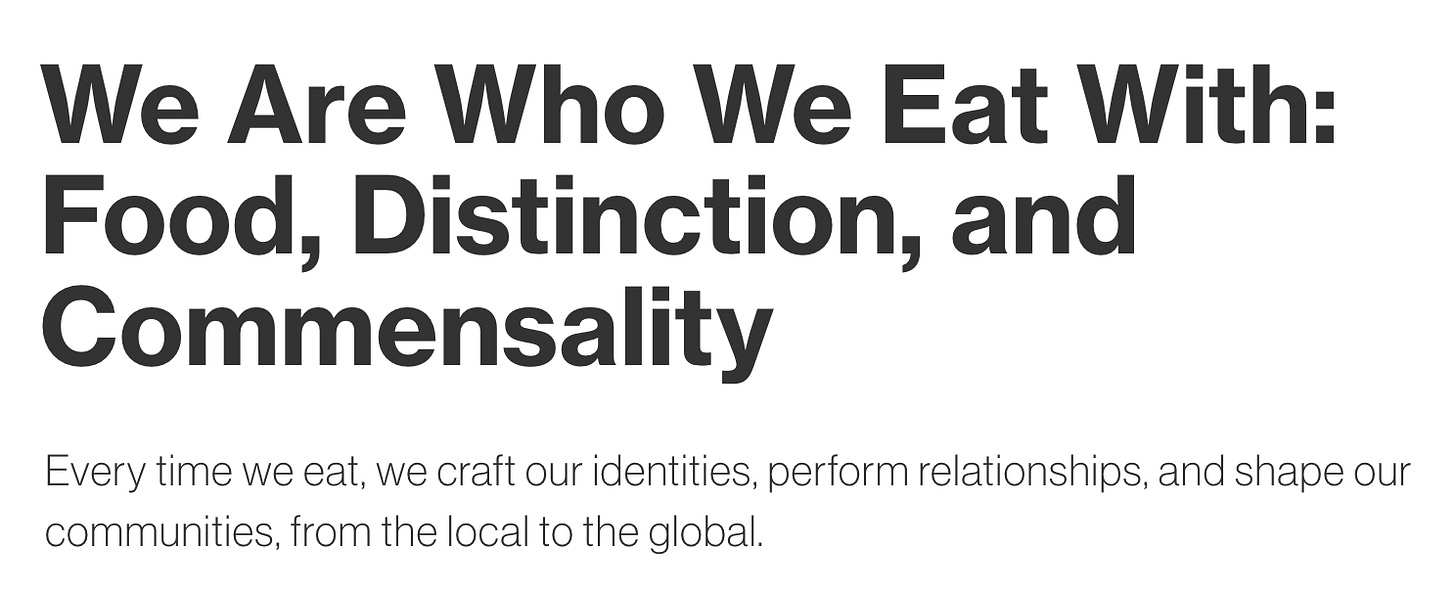
We have a long history of social eating rituals in the world.
The Ancient Mesopotamians had collective banquets in the presence of royalty. The Ancient Greeks became famous for their Dionysian symposia — a bit Aristocratic and male dominated, but probably very fun. The Romans had their conviviums — social feasts that they distinguished between the epulum (public feast), the cena (midday social meal) and the comissatio (drinking party).
Even during the dark period of the Middle Ages, people had their own fair share of medieval feasts, especially during Easter and Christmas.
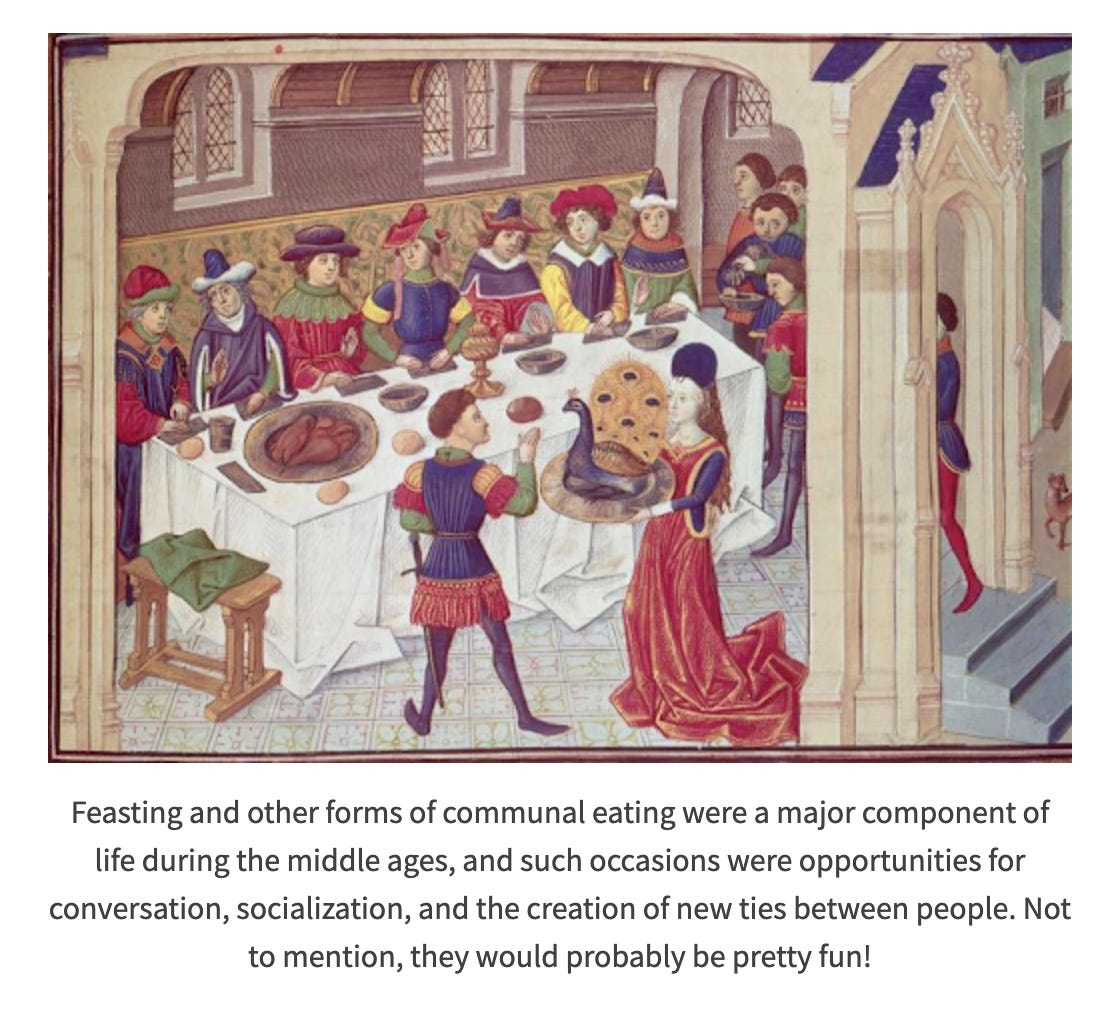
In the past, social eating was prevalent among the rich. Food was scarce, so banquets and feasts were typically accessible only to the elites of each society.
Today, with world hunger down from 24% in the 1970s to 9% in the 2020s, it’s easier to enjoy food with the company of friends and family for many more people.
Slow down your eating
Our modern society is all about fast food. It should be slow instead.
Eating should not feel like a race. The standardization of half-hour work breaks for lunch might be the single greatest sin of capitalism to date.
According to Harvard Medical School, we should try to be slow mindful eaters.
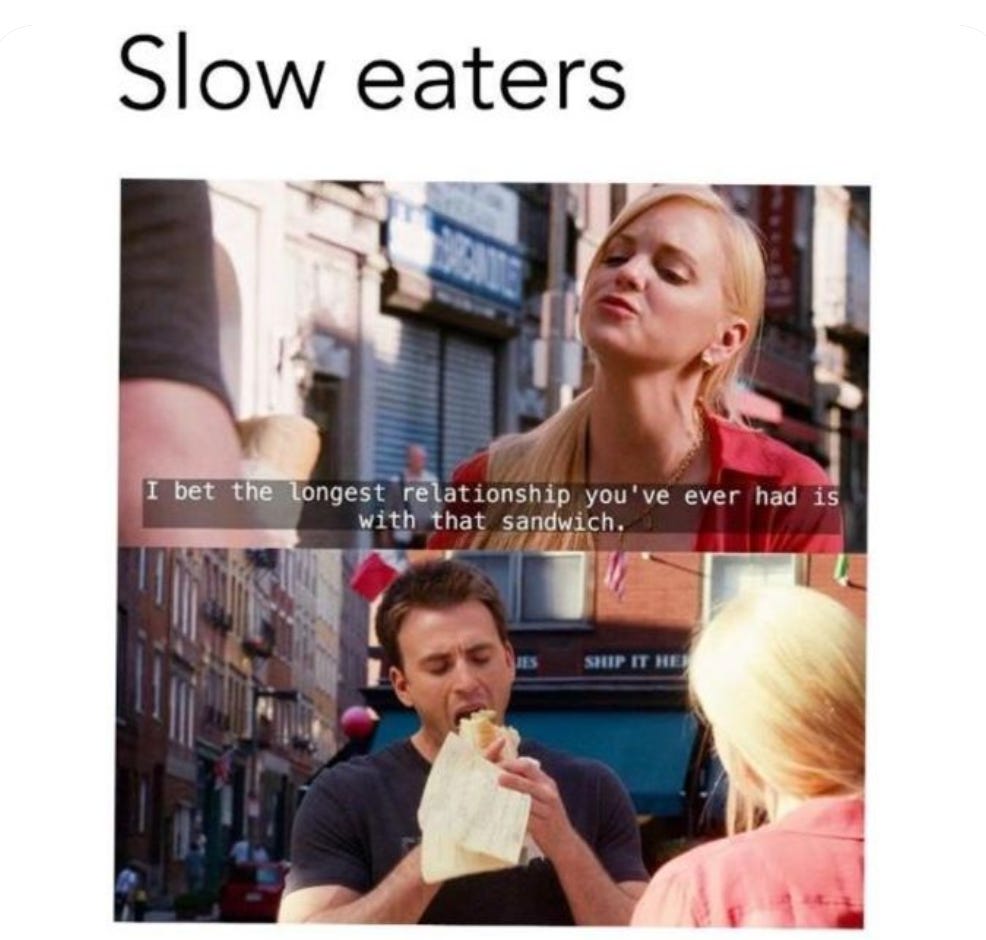
Obviously, we do not all have the luxury of taking a 1-hour breakfast, a 2-hour lunch and a 3-hour dinner every day. But slowing down once in a while can help us become more connected to our bodies and experience more of life around us.
Slow eating has also been found to be an effective way of losing weight by feeling fuller faster. Apparently, this realization has been mind-blowing for some people.
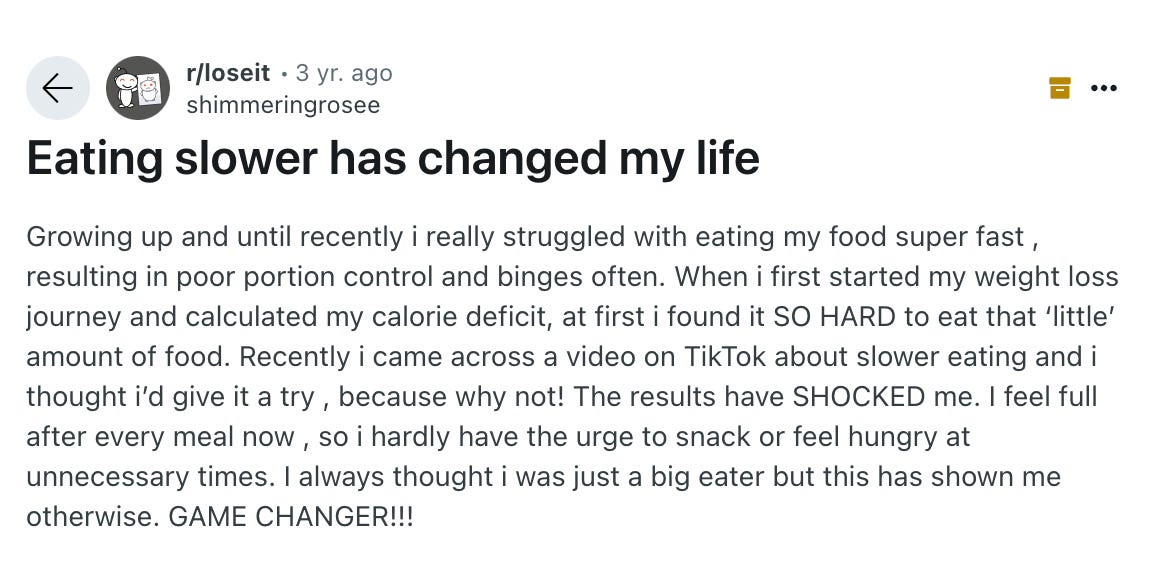
Slow eating can indeed be life changing.
The Greek way of eating
Last year, I wrote the following about the culture of Greek eating:
Slow, social eating. Loud dinners with family and friends, often until very late, are the hallmark of Greek social life. We take our time. We enjoy our food and each other's company. Part of our authenticity and the best cure for depression.
This might come as no surprise to people across Southern Europe, the Middle East and parts of Latin America. It might remind them of their own food cultures.
Greece’s relationship to food is inextricably linked to enjoying it with others.
The meals take forever. The plates are shared. The drinks keep coming. The food is always both too much and also never enough — I call this my big fat Greek Schrödinger. The conversations can be heard ten blocks away. Passing friends are always welcome. And you always leave the table filled — in body, mind and soul.
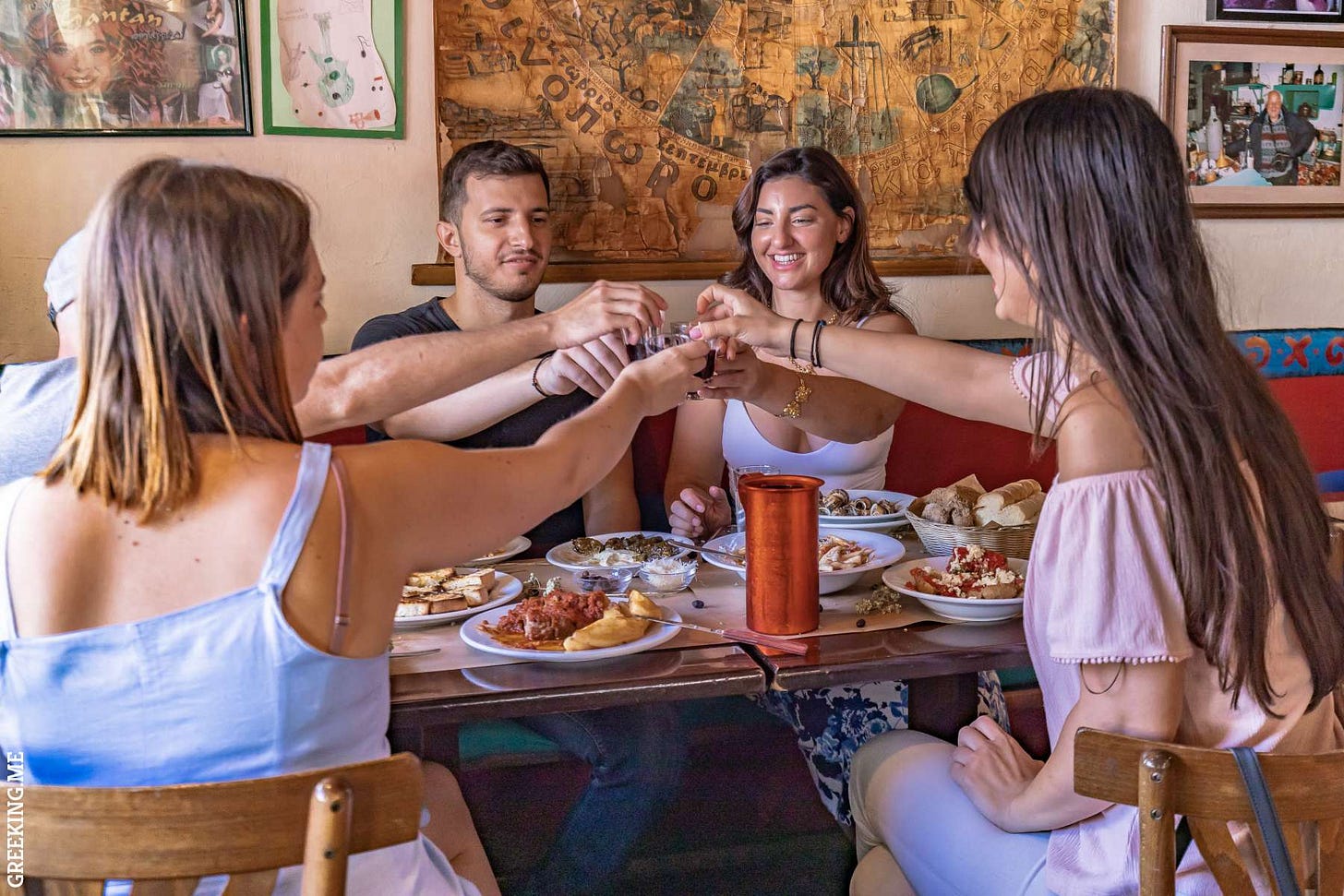
This is not a coincidence.
Apparently, it was unthinkable for the Ancient Greeks to eat alone, so they did everything in their power to eat together. We seem to have inherited that habit.
There are even two amazing phrases circulating online (that I have not been able to verify but really loved) attributed to Plutarch, the Ancient Greek philosopher:
“Eating alone does not mean that a man eats, but that he has simply filled his stomach, like animals do”.
- Maybe Plutarch
And:
“We do not come to the table to eat; we come to the table to eat together.”
- Also Maybe Plutarch
Slow eating with friends and family is an integral part of Greek culture.
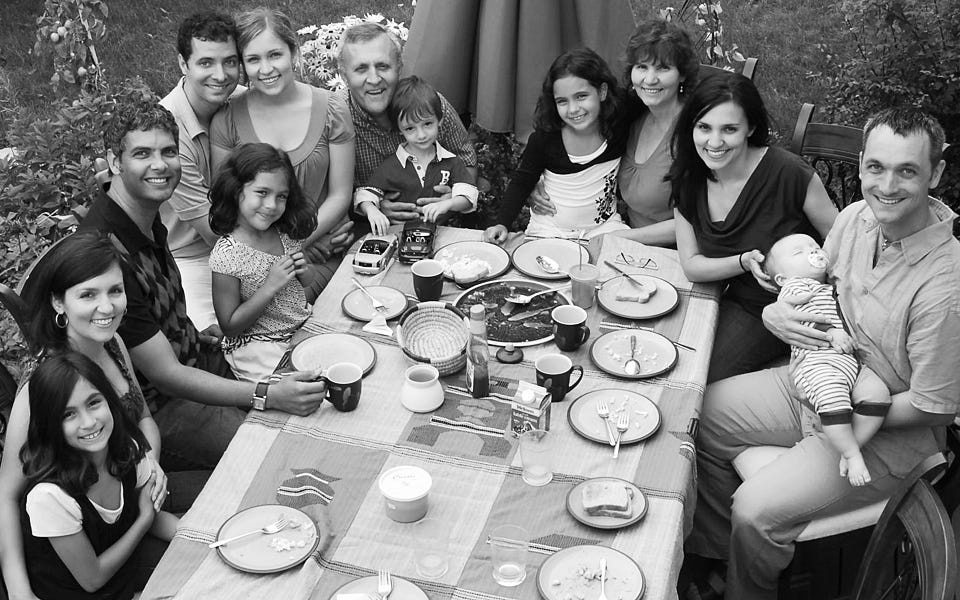
This is why I personally stand against restaurant time slots in Greece. They go against our long and cherished tradition of slow, social eating. 67% of the 2,700+ random respondents to my extremely scientific poll on X seem to agree with me.
Today, the country is experiencing a culinary renaissance fueled by the tourism boom. Athens is now full of gourmet restaurants, wine bars, gastro pubs and new age food pop-ups. Some of them are forcing strict time slots for their guests. This is silly, as it is alienating local Greeks, who are much more in tune with the concept of an unassuming and relaxed neighborhood taverna.
Greece’s food map today represents an amazing mosaic of traditional and modern cuisines. What ties everything together? A shared philosophy of taking our time when eating and making sure we meet our loved ones often enough to feast together.
Postscript
If you are a binge eater (like me), tend to eat alone in front of your screen whenever in focus mode (also me, more often than I care to admit) or have way too many Netflix-and-Chews every month (well, I now feel attacked by my own self) — this article is for you (and also, me).
Slow, social eating is the way. And Greece can teach the rest of the world a thing or two about it. I can think of no better cure to the global loneliness epidemic, the constant doom-scrolling and humanity’s inability to really connect with others in the age of complete digital connectivity.
There is a greater way to do food today and Greeks know it. Let’s do it more often.
So let me ask you again: what does food mean to you? Pick up your telephone, book your next dinner with the people you love, and find out.
Note: The cover photo is from the archives of the awesome Greek estate winery Strofilia.
If you enjoyed today’s newsletter, please let me know with a like or reply. Thanks!




We are who we eat with; and how we eat with them. Beautiful piece.
Loved this post. I have a charming recipe book: Μαγειρική του Αγίου 'Ορους. In it the author writes: Τά πάντα στή μαγειρική είναι εκδήλωση τής αγάπης μας πρός αυτούς [πού αγαπάμε]
A beautiful sentiment, and certainly my happy place is cooking for, and eating with, those I love.